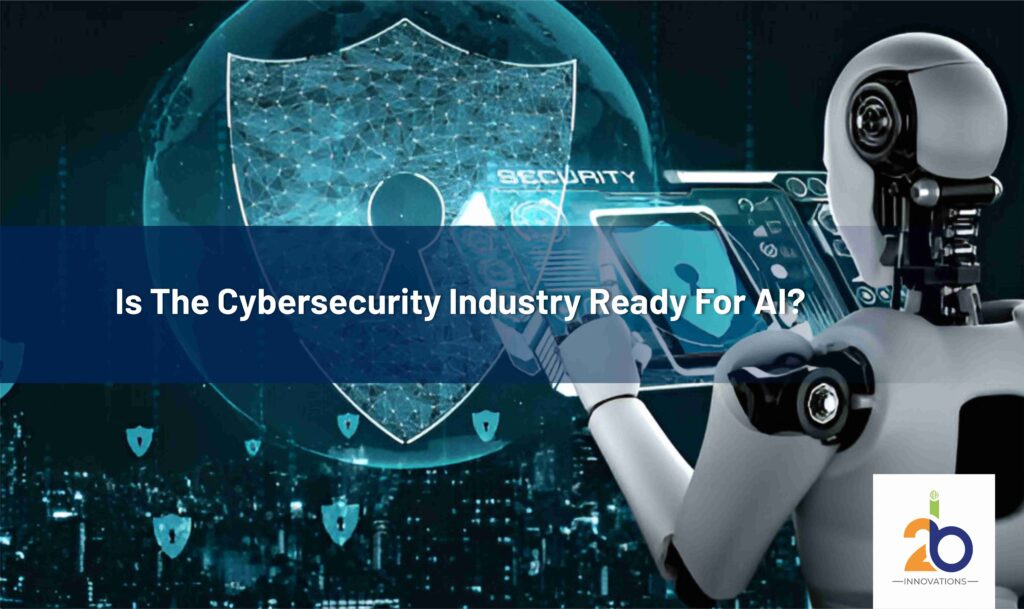
The cybersecurity landscape mirrors a vast museum. Security professionals, akin to guards, patrol a digital world brimming with valuable data. New threats emerge daily, demanding constant vigilance and adaptation. Traditional security measures, much like museum security protocols, struggle to keep pace with increasingly sophisticated attacks.
Why AI?
The answer lies in the sheer volume and complexity of cyber threats. Traditional security measures struggle to keep pace with the constant barrage of attacks. This is where Artificial Intelligence (AI) steps in, offering the potential to be a game-changer in the cybersecurity landscape.
When Did AI Enter The Picture?
AI’s role in cybersecurity isn’t entirely new. Many existing security tools already leverage machine learning, a subset of AI, for tasks like anomaly detection. However, the recent advancements in a specific type of AI called generative AI have sparked both excitement and concern.
The AI Advantage: A Guardian Angel For Cybersecurity?
AI offers several distinct advantages for cybersecurity professionals:
- Eagle Eyes
AI systems can analyze massive amounts of data (network logs, user activity, security events) in real time, identifying anomalies, and suspicious behavior that might escape human notice. Think of it as having a hundred extra sets of eyes constantly scanning for threats.
- Predictive Powers
AI can learn from past cyberattacks and historical data to predict future threats with surprising accuracy. This allows security teams to take preventive measures and fortify defense before an attack even occurs. In a mystical term, it suggests having a crystal ball that reveals hackers’ next moves!
- Action Hero
AI can automate routine tasks during incident response, freeing up valuable time for cybersecurity professionals to focus on complex investigations and mitigation strategies. Let AI handle the repetitive work, while your team tackles the high-stakes challenges.
A 2024 study by ISC2 revealed that a whopping 82% of cybersecurity professionals believe AI is becoming increasingly important in security operations. This highlights the growing recognition of AI’s potential to bolster our defenses.
A Key Example: A company utilizes an AI-powered security system that monitors network traffic. The system detects a sudden surge in login attempts originating from an unusual location. Recognizing the potential for a phishing attack, the AI automatically blocks access, flags the incident for security personnel, and even initiates initial containment procedures. |
The Double-Edged Sword: AI and the Rise of New Threats
While AI offers significant advantages, it also presents a new breed of challenges:
- The Dark Side of AI
Hackers are increasingly harnessing AI to create sophisticated phishing emails, malware, and social engineering tactics. These AI-generated threats can mimic legitimate behavior and bypass traditional security measures designed to detect known patterns. It’s like facing an enemy who can constantly adapt and reinvent their tactics.
- AI’s Achilles’ Heel
AI systems themselves can be vulnerable to manipulation. Hackers could exploit weaknesses in the training data or algorithms used to develop these systems, essentially turning our AI guardians against us. Imagine a security guard who’s been tricked by a cleverly disguised thief.
A Shocking Reality:
According to a Darktrace report, a staggering 75% of organizations have already been impacted by AI-generated threats. This statistic underscores the urgency of developing robust defenses against these new threats.
The Human Factor: Is the Cybersecurity Industry Ready for AI?
Despite the potential benefits, the cybersecurity industry faces hurdles in fully embracing AI
- The Knowledge Gap
Many cybersecurity professionals lack the expertise to manage and develop AI-based security systems. This skills gap needs to be addressed through targeted training programs to equip professionals with the knowledge to handle this new technology.
- The Black Box Problem
AI algorithms can be complex, and their decision-making processes can be opaque. This lack of transparency can make it difficult to understand how threats are identified and decisions are made. It’s like having a security guard who doesn’t explain why they’ve flagged someone as suspicious.
- Integration Challenges
Integrating AI with existing security infrastructure can be a complex and expensive undertaking. Organizations need to develop strategies to seamlessly integrate AI without disrupting current operations.
Take this as trying to install a new security system in a museum filled with priceless artifacts – you need a plan to ensure everything works together without causing damage.
- The Zero Trust Advantage
The Zero Trust security model, which assumes no user or device is inherently trustworthy, can benefit greatly from AI. Artificial Intelligence can continuously monitor user behavior, network activity, and access requests, helping to identify anomalies and enforce access controls in real time.
Building a Future-Proof Cybersecurity Workforce
To truly reap the benefits of AI and address the challenges it presents, the cybersecurity industry needs to take proactive steps:
- Invest in Training
Develop comprehensive training programs that equip cybersecurity professionals with the skills needed to manage and develop AI-based security solutions. This could involve courses on machine learning, data analysis, and AI ethics.
- Demystifying the Black Box
Advocate for the development of explainable AI. This means creating AI systems that can explain their decision-making process in a way that humans can understand. Imagine a security guard who can explain why they flagged someone as suspicious, providing details about the observed behavior that triggered the alert.
- Collaboration is Key
Encourage collaboration between AI developers and cybersecurity experts. This fosters a shared understanding of both the capabilities and limitations of AI, leading to the development of more robust and secure AI-powered defenses.
Consider the security guard working closely with the museum curator to identify potential vulnerabilities and develop the most effective security protocols.
Final Words
AI is a powerful tool with the potential to revolutionize cybersecurity. However, the industry needs to address its limitations and equip its workforce with the necessary skills to utilize AI effectively.
By bridging the skills gap, focusing on explainable AI, and fostering collaboration, the cybersecurity industry can build a future-proof defense against the ever-evolving landscape of cyber threats.
In essence, AI can be a powerful guardian angel for cybersecurity, but only if we approach its development and implementation with foresight and a commitment to human oversight. The future of cybersecurity lies in a synergistic partnership between human expertise and the immense potential of AI.



